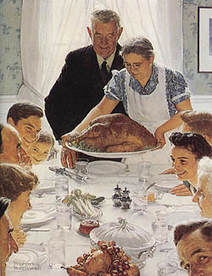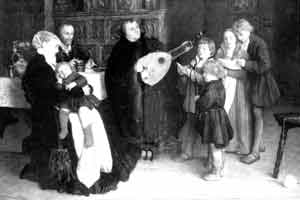|
We, as teenagers, often tend to associate modesty with old grannies wearing their old-fashioned frocks, stockings, and out-of-date shoes. But that isn’t what modesty really is. Sure they support that and dress accordingly to how they feel they should dress, but just because we’re told to dress modestly, doesn’t mean we have to be unfashionable or frumpy. Standing up and making a stand against immoral and skanky dress wear gives us a chance to be different and create our own dress style! My “style” is constantly changing and evolving but I have one basic sort of rule that I use as a guideline: BE DIFFERENT!
0 Comments
No matter where you live, if you have children of school going age, you will have grappled with the whole concept of how best to educate your child. For some the question is an academic one, for others it is a matter of proximity to where they live or work. Others still consider the size of the classroom, or how well the sports programme is organized. But what we should really be considering is whether or not God's Word is honoured and obeyed in the classroom.
Unless you have not left your home in the last 20 years, you will have seen a deterioration in morals, and in particular in the way we dress. As Henry Van Til observed: "culture is religion externalised." By this he meant that the culture of a nation reflects the true faith of that people.
Dress is not neutral. Historically public nakedness went hand in hand with pagan religions. Cultures that worship nature and treasure sensuality tend to dress immodestly (loin cloths and beads for example). Those which make an idol out of material possessions, often fall prey to an enslavement of extravagance and high fashion. The subject of discipline is more often avoided than properly dealt with, because it conjures up thoughts of abuse, neglect, and a generally unloving home. Even amongst concerned Christian families many questions regarding the correct way to discipline our children remain unanswered. I have yet to know of churches who deal with the subject sufficiently to help parents negotiate this minefield.
As responsible parents in the midst of educating our children, the time has arrived when we must ask ourselves several questions. Most concerned and involved parents grapple over issues regarding the size of the classrooms, peer pressure, the personality of the teacher, the safety of the school environment, sports programs, etc. These indeed are practical concerns. But the time has arrived to start asking more underlying questions that will affect the very moral development and character shaping of our future generations. It is time to consider the bigger picture.
Once upon a time, the building block of society known as the family was influenced by parents, the church and the extended family. There was safety in this and apart from some exceptions, children grew up to be more or less like their parents. Hardworking, diligent people of integrity produced the same character in their children and the Christian principles found in Scripture strengthened the community as a whole.
Today things are vastly more complex and the myriad of influences that hurtle towards the family can determine the rise or fall of this institution. Here are a few 'family shapers': How much is your family shaped by them? The issue of discipline is a much discussed subject in most concerned Christian households. Rarely a day goes by when the subject does not take center stage. God is a God of order and not of chaos, and our homes should reflect this. Scripture speaks to this subject very clearly and it is up to us parents to take heed. Not only will the souls of our children thrive, but our home will be a far more pleasant place for all who dwell therein.
New Testament writers Paul, Peter, John and the author of Hebrews make hospitality a Scriptural command, in fact, a duty. Why was this considered so important? What does it have to do with Christianity? The first Christians viewed themselves as part of a worldwide brotherhood and they knew they were a persecuted minority in a hostile world. "Little pockets of early Christians survived," writes C.S. Lewis, "because they cared exclusively for the love of the brethren and stopped their ears to the opinion of the Pagan society all round them."
The second commandment contains both a severe threat and a most incredibly gracious promise. “You shall not make for yourself an idol in the form of anything in Heaven above or on the earth beneath or in the waters below. You shall not bow down to them or worship them; for I, the Lord your God, am a jealous God, punishing the children for the sin of the fathers to the third and fourth generation of those who hate Me, but showing love to thousands who love Me and keep My commandments.” Deuteronomy 5:8-10
How do we know when it is permissible for boys to fight? When do we determine that an altercation was justifiable and when it was not? A boy fighting off a kidnapper is surely to be praised, but a boy reducing himself to a fistfight over the last sweet is to be disciplined. As parents we must instruct our boys to fight in a life-threatening situation and not to fight when the issue is petty and when a higher authority is just around the corner in the kitchen, who can adjudicate the dispute.
|
More Articles
All
Archives |
"And Jesus came and spoke to them, saying, “All authority has been given to Me in heaven and on earth.
Go therefore and make disciples of all the nations, baptizing them in the name of the Father and of the Son and of the Holy Spirit,
teaching them to observe all things that I have commanded you; and lo, I am with you always, even to the end of the age.” Amen.” Matthew 28: 18-20
Go therefore and make disciples of all the nations, baptizing them in the name of the Father and of the Son and of the Holy Spirit,
teaching them to observe all things that I have commanded you; and lo, I am with you always, even to the end of the age.” Amen.” Matthew 28: 18-20
|
P.O.Box 74 Newlands 7725
Cape Town South Africa |
|


 RSS Feed
RSS Feed
